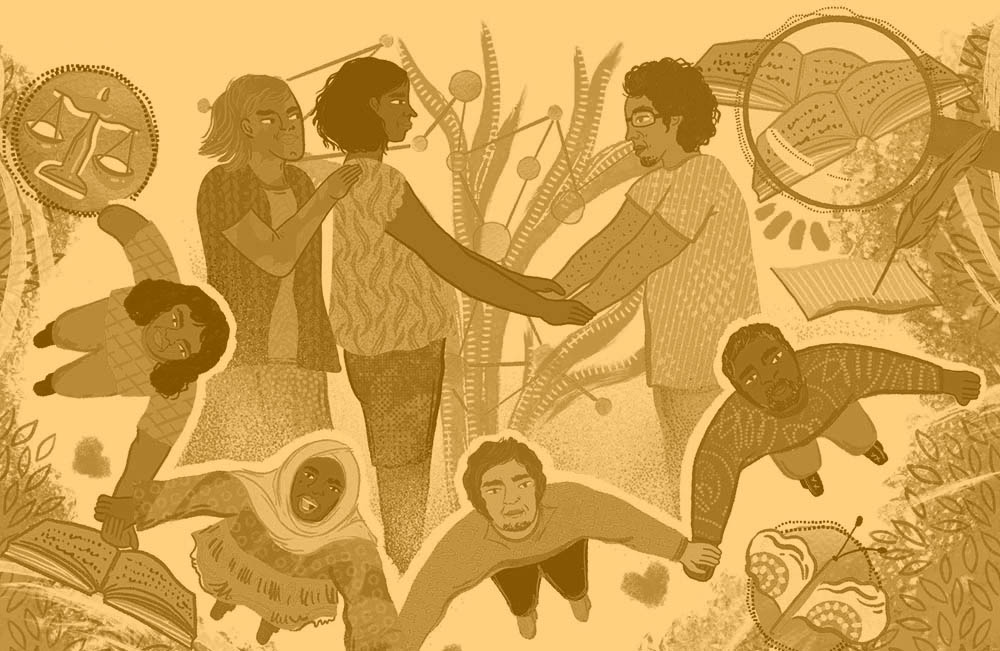Guest post by Sebijan Fejzula, a militant with Kale Amenge (Roma for Ourselves), a Roma anti-racist organisation, and a researcher at the Center for Social Studies, University of Coimbra, Portugal. Sebi participated in Systemic Justice’s roundtable on Access to Justice
As a Romani woman, being the narrator of our own history, struggles and experiences has always been and remains a challenging task: to be able to break with the hegemonic understanding about us, the Roma people and “our issues”, precisely because we have been framed, constructed and defined by white supremacy for five centuries. From ‘The Gypsy’ to ‘El Gitano’, historical white constructed and imposed identities mainly by white academics have defined “what does it mean to be a Roma. Other “experts on Roma” have designed the Roma agenda based on their own priorities, centring on cultural instead of political issues at the heart of our struggle.

These approaches have not only excluded important issues from the political debate on anti-Roma racism, issues such as criminalisation of Roma, forced deportations and evictions, school segregations, forced sterilisation of Romani women, police brutality, the high percentage of Roma in prisons, which has led to Romani people being one of the most dehumanised groups in Europe. It has also converted these issues into so-called “Roma issues”, legitimising the structural violence over us, justifying any type of intervention and/or excluding any responsibility and agency of the State’s violence. Even more worrying, it has excluded us as the self-agent in the construction of political subject, thus, converting us into a permanent object of diagnosis and state intervention. For us as a Roma collective, it is important to tell our history from our own embedded experiences and knowledge.
As stated in our 12-point programme of Kale Amenge (in Romani language this means Roma for Ourselves): To recognise our history is not only to recognise Flamenco and the cultural contribution of the Roma people, but to make visible — at the institutional, educational, and social levels — the attempts of extermination that have been carried out against Roma people over the past five centuries. Moreover, it is to recognise that these crimes are instrumental to the privilege that white people experience today and the situation of disadvantage and social exclusion that our people suffer. This necessarily implies initiating a policy of historical reparation and compensation that, beyond mere recognition, begins to generate the conditions that allow the structural difference that benefits the descendants of the executioners to be ended and that compensates the descendants of the victims of this history, which for us is still present.
It is within this context that Kale Amenge, a Roma anti-racist organisation I belong to was born, with the aim to contribute to the collective emancipation of the Roma people while fighting against the imposed need for “Roma integration” that came to represent nothing else but the State’s “civilising mission” to humanise us. Therefore, being invited to participate in a roundtable discussion designed to discuss access to justice based on the situated knowledge and experiences of different collectives in Europe is more than needed action in the current political spectrum, where violence and injustices are daily realities of many minorities, because it is then when we come to understand that:
There is not a Muslim problem.
There is not a Roma problem.
There is not a Black problem.
There is a problem with systemic oppression – or, in other words, with white supremacy – and this is our common enemy.
That was precisely what the roundtable discussion has allowed us to do, to allocate the common patterns of the daily struggles against the systemic oppression, such as: the criminalisation of certain bodies, those bodies identified as abnormal, the potential criminals, the uncivilised bodies, the struggle to discuss race and racism in a society that claims to be democratic, the struggle against self-representation, etc. Learning these unfortunate commonalities between us is in fact learning how power relations are built and maintained over us. Therefore, joining fights and building alliances have always been one of the main objectives of my collective, Kale Amenge. Only through creating safe spaces for discussions and actions between us, where the voices of those in the struggle are not constantly questioned and/or delegitimised, where we are not required to “prove” the Roma suffering, where we do not aim to create Olympics of oppression between us. Through these safe spaces we are able instead to link the struggles by identifying the common patterns to think and act globally, more collectively, so we can truly create some of the conditions required for thinking and contributing toward building a world in which we can feel safe for being who we are.
Being able to write this short piece allows me to reclaim the right to self-determination, self-organisation and self-representation. Reclaiming the right to ‘self’ is indeed one step toward breaking up with the power relations that have been imposed toward us, the Roma. To conclude this article, I will do it in the words of Angela Davis:
“You have to act as if it were possible to radically transform the world. And you have to do it all the time.”
